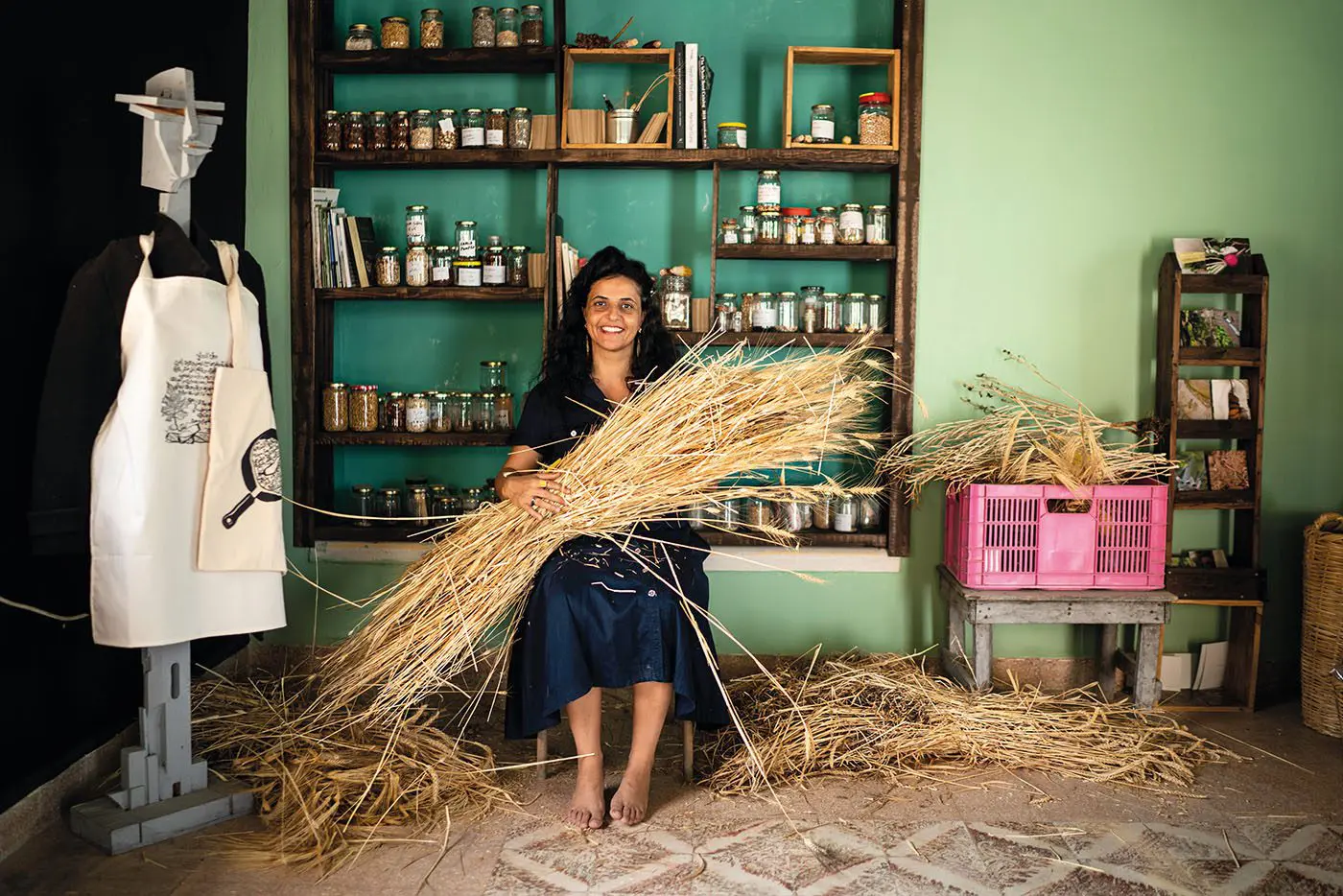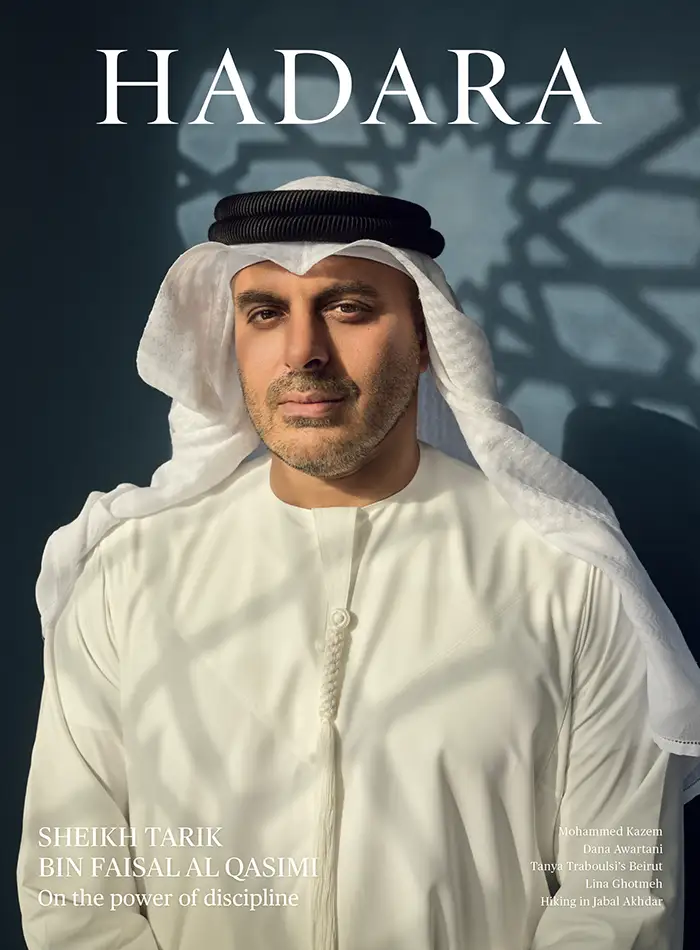Seeds of hope
In the West Bank, a remarkable project has grown from a kitchen garden to a global movement.
by Vera Sajrawi
Photographs by Samar Hazboun
“I love you as much as grapevines climb walls,” goes the Palestinian saying. A symbol of abundance, the grapevines across Palestine whisper tales of strength in every trailing leaf.
In the occupied West Bank, the village of Battir lies in the rolling hills between Bethlehem and Jerusalem. A grapevine climbs wall to roof on every home, creating a dappled shade known here as al-areesheh. Battir’s story is one of human ingenuity etched in stone. Ancient terraces, meticulously crafted over 5,000 years, climb the slopes, an intricate irrigation system that has made the village a UNESCO World Heritage site. Despite the hardships of Israeli occupation, including frequent military raids, settler attacks, and continuous attempts to confiscate land from the villagers, Battir’s inhabitants stubbornly preserve their farming traditions, drawing life from the earth.
In the heart of Battir, the Palestine Heirloom Seed Library has blossomed into a global movement, powered by the tenacious spirit of its founder and the resilience of Palestinians.
Researcher, farmer, and artist Vivien Sansour founded the project in 2016 in her Bethlehem kitchen to create a living archive of heirloom seeds. By her side stand farmers, their hands calloused by hard work. Together, they unearth forgotten crops. Each seed is a story of the land’s memory, and a defiance against the grip of capitalist corporations and occupation.
Sansour was frustrated by the shrinking biodiversity around her home, where terraces once full of olives, vegetables, fruits, grains, and legumes well adapted to the arid environment were being transformed into a monocrop culture reliant on Israeli agribusiness for seeds and chemicals. She set out to track down, preserve, and reintroduce the seeds that had kept Palestinians alive for thousands of years—and to tell their stories.
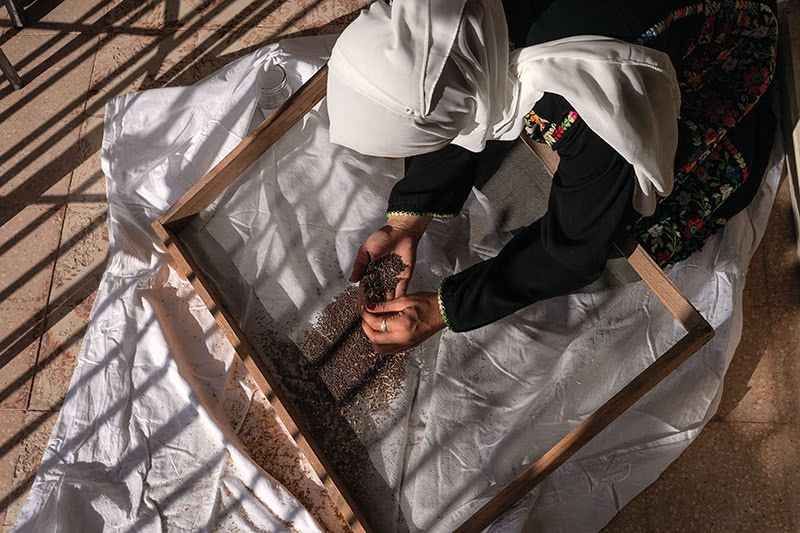
Opening image, Vivien Sansour founded the Palestine Heirloom Seed Library to find and reintroduce threatened crop varieties. She works to make them part of Palestine’s living culture.
“There was a moment when I felt defeated seeing my people starving. Then I started to talk to people in Gaza, and one young farmer was able to find some dry peppers, extract the seeds, and plant them in the middle of the war.”
Farmers come to the library and take for free heirloom seeds they are interested in planting, on the condition that they do not use pesticides and that they return the same number of seeds at the end of the produce season. Those who visit the library, especially from abroad, who cannot return seeds, are asked to buy them.
Fatima Abu Hassan, the library’s caretaker, says the farmers care for the seeds like their children. “We preserve native, organic, pesticide-free seeds,” she says. “It is a given that they do not use pesticides and plant the seeds authentically.”
The heirloom crops—such as aubergine, cucumber and tomato—are essential for biodiversity and resilience to climate change. Over generations of cultivation, these plants can grow in the rocky terrain without needing much, if any, irrigation. Such qualities will be essential beyond Palestine as droughts become longer and more frequent in areas used to plentiful rainfall.
In a world increasingly dominated by industrial agriculture, the role of heirloom seeds has become a beacon of hope for these farmers to maintain their food sovereignty. For many small-scale Palestinian farmers, the lack of access to costly industrial inputs and limited access to water has necessitated a return to time-honoured, organic farming practices.
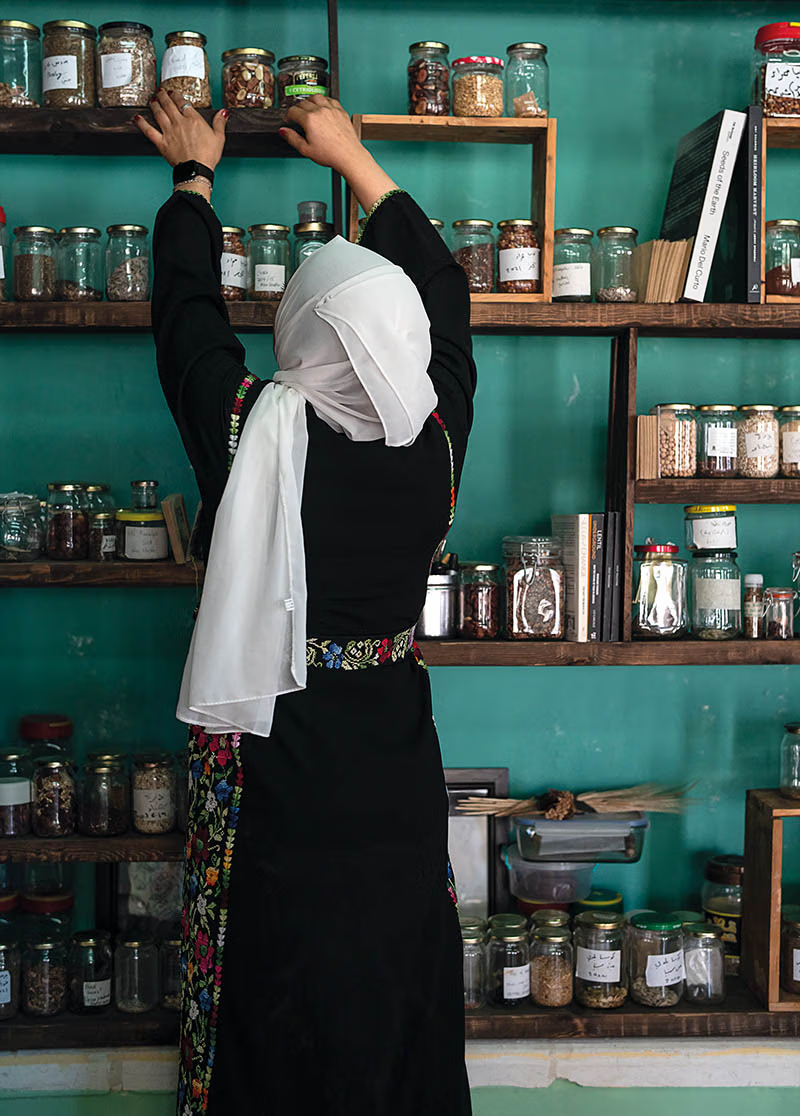
The library has grown quickly from 30 kinds of seeds to around 100. Farmers take the heirloom seeds they are interested in planting free of charge. Other visitors to the library are asked to buy them.
While this organic approach may require more effort, it is a matter of survival, not a label. These farmers are stewards of biodiversity, preserving the genetic diversity that industrial monocultures erase. By safeguarding heirloom seeds, they are not only ensuring food security for their communities but also safeguarding the resilience of our global food system.
Sansour was born in Jerusalem and grew up in the village of Beit Jala. She was a PhD student in agriculture and life science in the US when she decided to quit and go back to Palestine to learn about the land from the real teachers: farmers. She had ideas then for turning family land into a farm—but suddenly the Israeli army confiscated it.
“I was born, like most Palestinians, asking why this is happening to us, but I was also born in an abundant and gorgeous environment,” she says. “The tragedy and the joy were held together at the same time. I found a perfect metaphor in seeds because they show you that death is an illusion, nothing dies, everything is always transforming from one state to the other.
“I looked to seeds because I was in grief about being separated from the joyous life I grew up in as a village girl. The world can survive today because of the hard work of people in the past which enabled these seed varieties to save us and offer us a way to produce food without abusing the planet. I started to feel that we are truly these seeds and the more we understand the seeds and their stories, the more we understand, celebrate, and accept ourselves, and reject narratives trying to dominate us.”
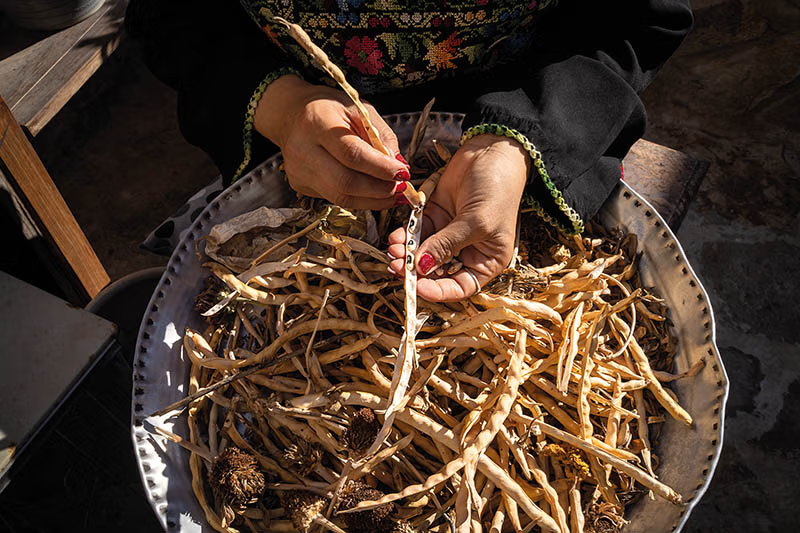
Sansour initially collected seeds and recipes for her own pleasure. Every day, she discovered a new dish or way of farming that reminded her of her childhood. She shared her newfound knowledge on social media. “It grew bigger and bigger, to the point where I quit doing other work and started to collect and share seeds. People started to share their stories and it became a safe space for us to get to know ourselves, together.”
She hopes future generations will have the chance to taste the original flavours of Palestine, the same ones their ancestors enjoyed, especially in the now-devastated Gaza.
“I dedicated my life to the question of how we can be free to have autonomy over our food sources,” Sansour says. “There was a moment when I felt defeated seeing my people starving. Then I started to talk to people in Gaza, and one young farmer was able to find some dry peppers, extract the seeds, and plant them in the middle of the war.”
For Sansour, the incident reinforces that seeds represent the essence of life. “They are the evidence of who we are, the genius of our people who produce creative codesigns with nature, seed varieties that can withstand drought, dig their roots deep into the earth to find moisture, drink the dew, and give you a fresh tomato, even when you did not irrigate it.”
As a Palestinian, she feels that her people win when they do not become like their oppressors. “I hope that the vision of our Seed Library [shows] that it is not just about Palestinian seeds, but it is about how Palestinian seeds can tell the story of the tenderness of our people, and people around the world that have made it possible for us to have shade under a tree. I hope that what we work for and the death of our loved ones do not go in vain and it offers the world an awakening and greater commitment to break destructive human patterns.”
The library has grown quickly from housing 30 kinds of seeds to around 100. The seeds are spread widely by visitors to the library in Battir who take them to different corners of the world.
“We launched The Seed Protectors Project in the US—for our seeds to have a home and shelter in a time of war when they are threatened. We are working with partners who are growing our seed varieties and are committed to telling their stories,” Sansour says. “We will have more Traveling Kitchen events where we talk about Palestine and its seeds while cooking our traditional dishes and telling our stories. Our job is to make sure the seeds stay well and alive, and for people to enter into a relationship with them so that they continue to exist. It is happening in a way that I could have never expected.”

